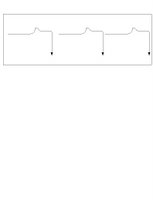Mastery and the Plateau
 I recently completed a wonderful, short book entitled Mastery, written by George Leonard.
I recently completed a wonderful, short book entitled Mastery, written by George Leonard.The first wonderful thing to report is that the book is based entirely on his own experience of learning aikido, from the novice stages to the point where he is a black belt, with his own school. This gives a certain gravity to what he says, coming from a serious discipline that requires a certain kind of devotion that cannot be short-cut, or faked. Also, the fact that this is a sport, as opposed to a part of his work, makes it that much easier to appreciate, and hopefully to apply to other parts of life.
The second wonderful thing is that he really says some new things that I have never heard before about the journey that each human being must take to advance themselves along their chosen path of interest in life -- no matter what the path is. It is fascinating to me to realize that each and every chosen path is worthy of mastery -- even plumbing, as I mentioned in an earlier blog on this topic!
Regardless of the path, there is a certain humanity that we must all deal with that is inescapable, even if we have Tiger Woods' sized talent in our field of interest. The author's observations about this path are what struck me as unique.
In the book he rightly observed that most of use do not demonstrate what it takes to become masters in the fields that we pursue, mostly because we simply love to find shortcuts and easy payoffs. He introduces three ways in which people try to avoid the long, slow struggle to mastery.
The three ineffective ways of being that people adopt are what he called The Dabbler, The Obsessive and the Hacker. I believe that we indulge in all these ways at different times in different fields, as we are confronted by what it takes to become a real master in one or more areas.
The Dabbler is someone who approaches each area of interest with enormous enthusiasm, whether it be a new sport, career opportunity, or relationship. This person loves the newness of getting started, and the new equipment, clothing, people and language that mark the beginning phases of any new interest.
They are overjoyed with their new find, and are willing to talk with anyone who will listen about their new interest. The first few lessons are eagerly anticipated, and as the early gains come there is a sense of euphoria.
The excitement continues until the first wall comes which marks the start of the first plateau in improvement. It starts to look as if nothing is happening, and to the Dabbler this is unacceptable -- something must be going wrong.
The Dabbler's response is to rationalize that this must be the wrong sport, career choice or paramour. They start to blame the hobby, the coach, the manager, the lover -- whatever they must do to explain to themselves what is happening.
Starting all over again with another new interest is the only option, and the Dabbler quickly finds something new, or someone new, or some new place to be excited about all over again. Nothing gets accomplished, because the Dabbler is always... dabbling, and never spend enough concentrated time and effort in becoming masterful.

Over time, the Dabbler's progress might look like the diagram at left.
The Obsessive, however, loses him or herself in the all the activity of their new interest. They devote tremendous amounts of time, energy and money acquiring information about their new area of interest. In a sport, they seek extra coaching wherever possible, and spend extra time practicing wherever they can. They purchase every book they can get their hands on.
In a relationship they virtually study their partner and cannot bear to be away or out of contact for very long -- as if the other person's presence is the most important thing to have.
This person is hooked on immediate results -- the immediate knowledge, the felt thrill of learning and improving quickly. When the results slow down by virtue of hitting the inevitable plateau, the Obsessive redoubles their efforts. They work harder than ever, and put in even more effort to try to break out of the plateau. Long hours, late nights and 7 day a week work-weeks are their trademark.
In a relationship, they are the ones who crowd out their partner, stifling them with unceasing and eventually unwanted attention. They will not allow the plateau to run its course, and instead do whatever they can to force improvements and results to come.
Eventually, the Obsessive overdoes it, and the inevitable result is either burn-out or crash-out, sometimes carrying others with them in what is often a painful fall for everyone involved.

Over time, the Obsessive's progress might look like the following diagram:
The Hacker, by contrast, is someone who hits a wall in performance and never generates enough intention to get past it. They are content to stay in the plateau indefinitely, hanging around without improvement, and never expecting to get any better.
They might just be involved for the "fellowship," or the free food or the security, but the fact is they are satisfied with never ever doing any
 better at the particular interest. At work, they do just enough to never get fired. In a marriage, they simply enjoy the security of the relationship, without worrying themselves about learning and growing in the relationship.
better at the particular interest. At work, they do just enough to never get fired. In a marriage, they simply enjoy the security of the relationship, without worrying themselves about learning and growing in the relationship.For them, keeping things the same is of paramount importance, and their time is spent dealing with threats that might disrupt the status quo, either positively or negatively. The Hacker's progress over time is shown in the diagram at left.
Obviously, most people are not one type or another in every place in life. Most of us live lives in combination -- e.g. being a Dabbler in playing sports, and being a Hacker in relationships. The net effect is the same however -- Mastery in nothing.
The Master, however, is someone who is able to deal effectively with the walls that inevitably comes in attempting to improve performance.
In the early stages of a new interest, there is steady improvement, and then a spurt of gains as everything seems to come together all at once. The body and mind which have been learning at different rates cooperate to produce the perfect result, and all of a sudden there is a breakthrough in performance.
 However, once the breakthrough has been completed, there is always an immediate drop off in performance, followed by a plateau, as the body and mind consolidate and organize at this new level, and begin to prepare for the next improvement.
However, once the breakthrough has been completed, there is always an immediate drop off in performance, followed by a plateau, as the body and mind consolidate and organize at this new level, and begin to prepare for the next improvement.Therefore, improvement does not come as a steady graph of upward improvement. Instead, improvement comes in spurts, and usually all at once after spending significant time on the plateau in which nothing seems to be happening. See the diagram at left.
A couple of weeks ago, on my regular 4:00 a.m. bicycle ride here in Kingston (described in this blog entry) I suddenly realized that I was riding stronger than ever before. The experience was unmistakable -- instead of barely hanging on at the back of the pack of the riders, I felt as if I was cruising with additional strength to spare at what was about a 25 - 27 mph pace. I actually was able to be up with the fastest riders at the front, and to participate in the final sprint at the end, which took us up to 32mph or so.
The improvement was stunning to me and to several others who, on the ride back up Mountain View, remarked that I was riding much stronger than before. I had clearly broken out of the plateau I had been on since February, when I first started riding with this group.
It is during the plateau that the dysfunctional behaviour of the Dabbler, Obsessive and Hacker occur.
The Master, however, reacts differently, neither quitting, nor becoming neurotic, not giving up on further improvement.
Instead, the Master devotes him or herself to practice, because that is all that there is to do in the plateau. Patience, discipline and diligence are their watchwords as they immerse themselves in perfecting their craft.
When the plateau is described to most people, their mind (which has been trained by the current culture to think in terms of immediate gratification) reacts with a feeling of boredom or fatigue. However, the Master is able to do more than just be bored -- they are able to find satisfaction, joy and challenge even while they endure the lack of improvement.
The Master's focus is not on the immediate results, but instead it is on the practice itself, and on perfecting the drills that are required in this phase to eke out the invisible small improvements that are the hidden building blocks of the sudden improvements that occur days, months and even years later.
Is the source of Brian Lara's achievements his talent, or is it the millions of balls he has faced in the nets practicing the same strokes over and over again for over twenty years? Clearly, talent has its place, but it is only a starting point.
Is the source of Tiger Woods' achievement his father who encouraged him, or is it the millions of shots he has taken and the minute changes he has made to his game over the years? Obviously, early coaching has its place, but that cannot replace the solitary practice he has undertaken over most of his life.
In the moments when I have enjoyed the plateau, there has been a profound feeling of being alive, and awake to what is around me. In the Total Immersion swimming technique that I have used for almost ten years, there is an emphasis on doing drill after drill, and looking for
small improvements in technique and in one's feel for the water.
Recently, I switched from breathing every 2 strokes to every 3 strokes, a change I tried several years ago without success. Only now, after years and miles of practice, could I make the switch and get my body and mind to cooperate, with the result being an instant boost in sped, and an ability to use the new stroke without feeling as if I am drowning!
Other areas of mastery that I realized I have committed myself to after reading this book include: public speaking, managing my company, growing in my relationship with my wife, expanding my relationship with the Divine and leading high-stake interventions in organizations.
Of course, I have many other areas of minor interest that I have no commitment to become Masterful in, such as fixing computers, university teaching, cooking and playing cricket and football.
The challenge for our people here in the Caribbean is that they are becoming more and more like their counterparts in North America -- trained to seek instant satisfaction from life around them. Nowhere in our school curriculum are students taught to value, to enjoy, even to love the plateau, the long stretch of diligent effort, with no seeming progress (according to the author.)
This is a tragedy, not only in accomplishment, but also in personal enjoyment because accomplishing anything worthwhile involves a commitment to Mastery. Granted, there is a thrill in winning the lottery, but that is a fleeting victory and comes from luck rather than diligent effort and application.
Often, the gifted athlete makes the worst coach, simply because they are ill-acquainted with the plateaus that an athlete must learn to love in order to reach the higher levels of accomplishment. They find it hard to help an athlete go through these plateaus simply because they do not know of their existence from first-hand experience.
The author, in closing, makes the overall observation that on a daily basis we are not present to each and every moment, and therefore rob ourselves of the joy that is available. We wake up and hurry to take a bath (taking a bath isn't important). We hurry up and "grab a bite" to eat (eating is not important). We rush to put on our clothes (also inconsequential). We rush to drop off the children and to get to work through the unimportant" rush hour" traffic. We engage in some light chatting, because we are too busy to really talk (more important things await). Perhaps work will be challenging and interesting and different (but most days, it is not).Maybe lunch will bring a stimulating conversation... but it usually doesn't.
And so on.
The fact is, life consists mostly of plateau-like activities, and even a World Cup footballer will play at most 2-3 matches of ninety minutes each per week during the season, which equates to at most 4.5 hours out of a possible 126 waking hours -- some 4%.
If our experience of our lives has more to do with our moment by moment experience, than anything else, then teaching ourselves to love the practice that is required in the plateaus may be the beginning of actually leading a Masterful life.


3 Comments:
Wow! I have to say I have now added this book to my "must-read" list. There is so much of my life described here (in all 4 personas) :-D
By Anonymous, at 6/22/2006
Anonymous, at 6/22/2006
I agree with B. I will be reading this book soon. Also, good post here.
By Anonymous, at 6/29/2006
Anonymous, at 6/29/2006
b,
Me too! After reading this short book ifelt like someone understood some part of me for the first time, and also gave me some courage to stick it out.
By fwade, at 7/06/2006
fwade, at 7/06/2006
Post a Comment
<< Home